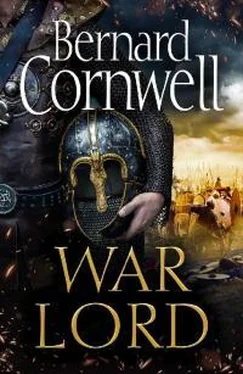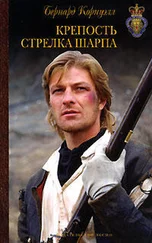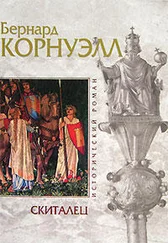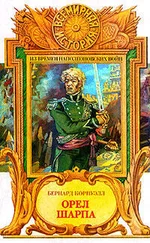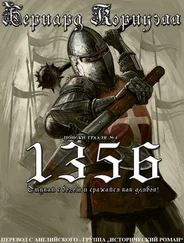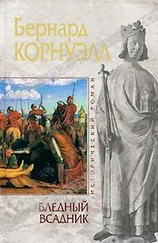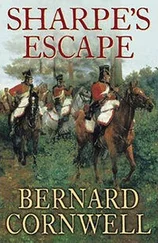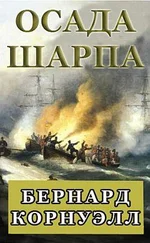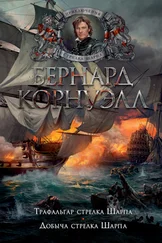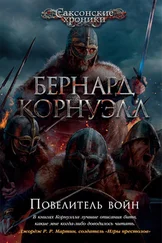That nation was England, and Brunanburh is its founding moment. When Uhtred’s story began, there were four Saxon kingdoms, Wessex, Mercia, East Anglia, and Northumbria, and King Alfred had a dream to unite them into one. To do that he needed to repel the invading Danes who had conquered Northumbria, East Anglia, and northern Mercia. Alfred’s son Edward and his daughter Æthelflaed reconquered East Anglia and Mercia, but Northumbria remained stubbornly independent and ruled by Norsemen. Scotland lay to its north, Æthelstan’s Saxon kingdom to the south, and both had an interest in its fate. Æthelstan wanted to fulfil his grandfather’s dream of a united England, Constantine feared and resented the growing power of the Saxons, which could only grow more powerful if Northumbria became a part of England.
That growing power was demonstrated in AD 927 at Eamont Bridge in Cumbria when Æthelstan demanded the presence of Constantine and the rulers of Northumbria to swear loyalty to him. He had already demanded the same oath from Hywel of Dyfed. Æthelstan was now calling himself the Monarchus Totius Brittaniae , yet he was content to leave Guthfrith on Northumbria’s throne. Guthfrith’s death meant that his cousin, Anlaf of Dyflin, now had a claim to Northumbria’s throne and it also led to unrest as Constantine increased his influence in Northumbria, especially in the western part, Cumbria. That unrest led to Æthelstan’s invasion of Scotland in AD 934. His army and fleet reached the northernmost part of Constantine’s kingdom, but it seems the Scots avoided any major battles, leaving Æthelstan free to pillage their land.
So the ‘northern problem’ became soured with hatred and humiliation. Constantine had been humiliated twice, first at Eamont Bridge, then by his inability to stop Æthelstan’s invasion. He was intent on destroying, or at the least severely diminishing, the growing power of the Saxons, and so allied himself with Anlaf. Their intent, when they invaded Æthelstan’s land in 937, was to take revenge on the Saxons and put Anlaf on Northumbria’s throne where he would rule a buffer-state between Constantine and his most dangerous enemies. That attempt failed at Brunanburh and the Saxons incorporated Northumbria into their own country, and so the Kings of Wessex became the Kings of England. It is fair to say that before the battle there was no England. As dusk fell on that bloody field, there was.
By any measure that makes Brunanburh a significant battle, yet curiously it has been forgotten. Not only is it forgotten, but for centuries no one even knew where the battle had been fought. Many claims for the site of the battle have been put forward over the years, ranging from southern Scotland to County Durham or Yorkshire, and ingenious theories were advanced, mostly depending on the place name and on clues that could be drawn from ancient chronicles, but no certainty emerged. There were two major contenders. One insisted that the battle had to be fought close to the River Humber on England’s east coast, the other favoured the Wirral on the west coast. In the twelfth century a monk called John of Worcester wrote a history in which he said that Anlaf and Constantine brought a fleet into the River Humber, and that assertion has bedeviled the argument ever since. Anlaf did indeed bring a strong fleet from Ireland, but it is fanciful to believe that he would sail that fleet halfway around the British coast to reach the Humber, when the crossing from Dublin to the English west coast is so direct and so short. What was lacking in the argument was any archaeological evidence, but in the last few years that evidence has at last been found by Wirral Archaeology who have discovered artefacts and grave pits that would place the Battle of Brunanburh firmly on the Wirral. The quickest way to locate the battle site is to say that if you are driving north on the M53 then the slaughter took place just to the north and west of Exit 4.
The various accounts of the battle, most written years or even centuries after the event, do record the death of a bishop during the preceding night. The unnamed bishop’s death is attributed to Anlaf himself, who, in a feat similarly ascribed to King Alfred, infiltrated Æthelstan’s camp in an attempt to assassinate Æthelstan, but instead discovered a bishop. There was no bishopric of Chester in 937, so my version is entirely fictional, as is Bishop Oda’s snatching of Uhtred’s sword at the height of the fighting. That story also comes from the chronicles, which claim that the bishop performed a miracle by supplying Æthelstan with a sword when the king’s blade was shattered. Bishop Oda, son of Danish invaders, eventually became the Archbishop of Canterbury.
Was the battlefield decided in advance and marked by hazel rods? We have a fragment of a document called Egil’s Saga , in which Egil Skallagrimmrson (a Norseman who apparently fought for Æthelstan) describes how the field was marked with hazel rods and mutually agreed as the place the armies would meet. It seems an extraordinary idea, but it was a convention of the period and I adopted it. Other sources claim that Æthelstan reacted late to the invasion, which poses the question why Constantine and Anlaf did not push further inland once they had concentrated their armies on the Wirral, and using an agreed battle site offers an explanation.
The Battle of Brunanburh was the founding event of England, though the Norse did not abandon their ambitions. Æthelstan died in 940, just three years after his great victory, and Anlaf returned to England and successfully took Northumbria’s throne and then captured a swathe of northern Mercia. Æthelstan’s successor, King Edmund, finally drove him out, re-establishing the kingdom of England that Æthelstan had won at Brunanburh.
The story of England’s making is not well known, which strikes me as strange. I received a good education, but it passed swiftly over the Anglo-Saxon period, pausing to mention King Alfred, and then began a more detailed account at 1066. Yet William the Conqueror, himself the grandson of a Viking raider, captured a country which, at Alfred’s death, did not even exist. Alfred undoubtedly dreamed of making one country, but it was his son, his daughter, and his grandson who made the dream come true. In AD 899, the year Alfred died, the Danes still ruled in Northumbria, East Anglia, and northern Mercia. There were still four kingdoms, and it was a miracle that Wessex had survived the onslaught. In AD 878 Alfred had been driven as a fugitive to the Somerset marshes, and it must have seemed as though Wessex would fall to the Danes. Instead, at the battle of Ethandun, Alfred defeated Guthrum and began the expansion of his territory that fifty-nine years later would see the slaughter at Brunanburh and the unification of the four Saxon kingdoms. It truly is an extraordinary tale.
Author Note
I am enormously grateful to Howard Mortimer of Wirral Archaeology who showed me many of the artefacts discovered at the battle site and generously gave me a tour of the Wirral. His colleague, Dave Capener, provided me with his written assessment of the battle, which I have largely copied in this fictional version. Cat Jarman, an archaeologist at the University of Bristol, was helpful with many queries, and it was Dr Jarman who identified the small knife discovered on the battlefield, which Wirral Archaeology so generously gave me. I am grateful to all the members of Wirral Archaeology who offered help and advice, and ask their forgiveness if I have somewhat simplified the battlefield to make it more understandable. I am also grateful to Michael Livingston who generously shared his thoughts with me, and am especially grateful that he reminded me of Beowulf’s great age when he killed the dragon!
War Lord is dedicated to Alexander Dreymon, the actor who has brought Uhtred to life in the television series, and he must stand for all the extraordinary actors, producers, directors, writers, and technicians who have flattered these novels with their talents. I should also thank the wonderful people at my publishers, HarperCollins, who have been so supportive, as has my agent, Anthony Goff. Above all I owe thanks to my wife, Judy, who has endured fourteen years of shield walls and slaughter with her customary grace and patience. To all of them, thank you!
Читать дальше
